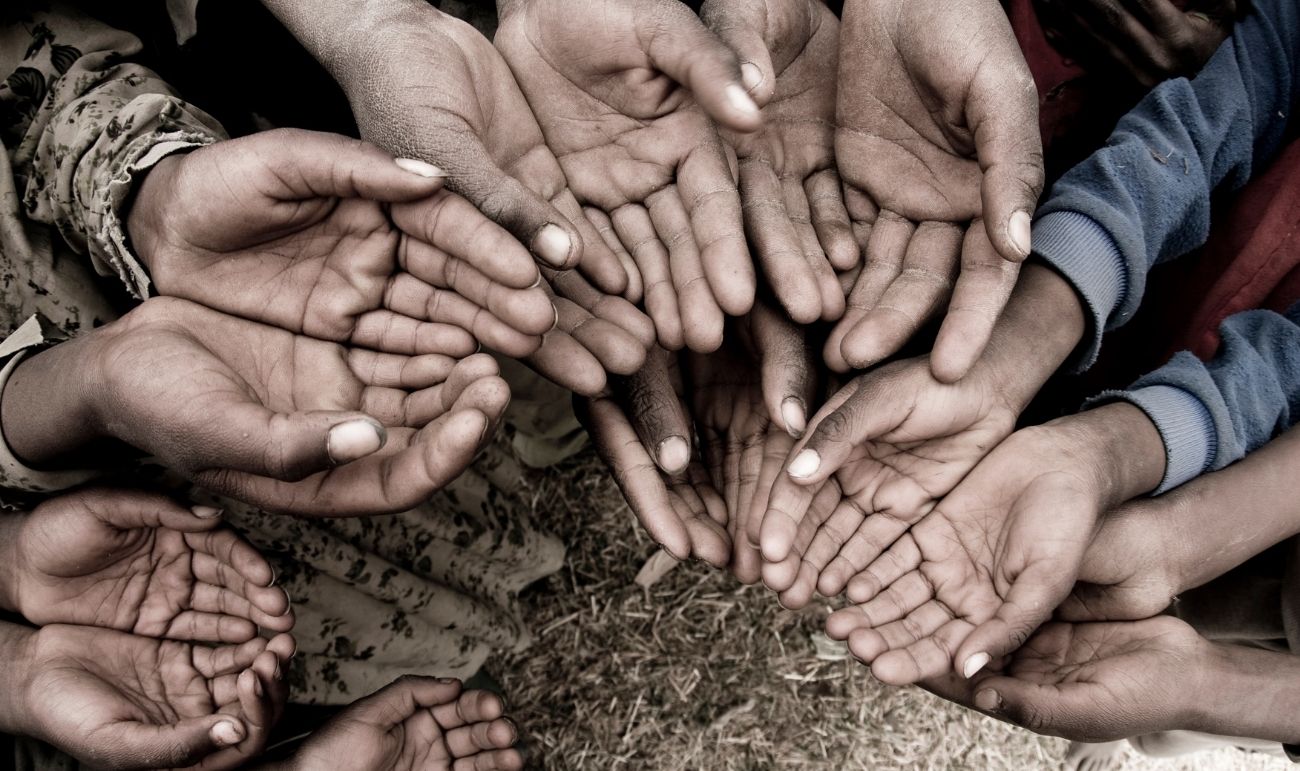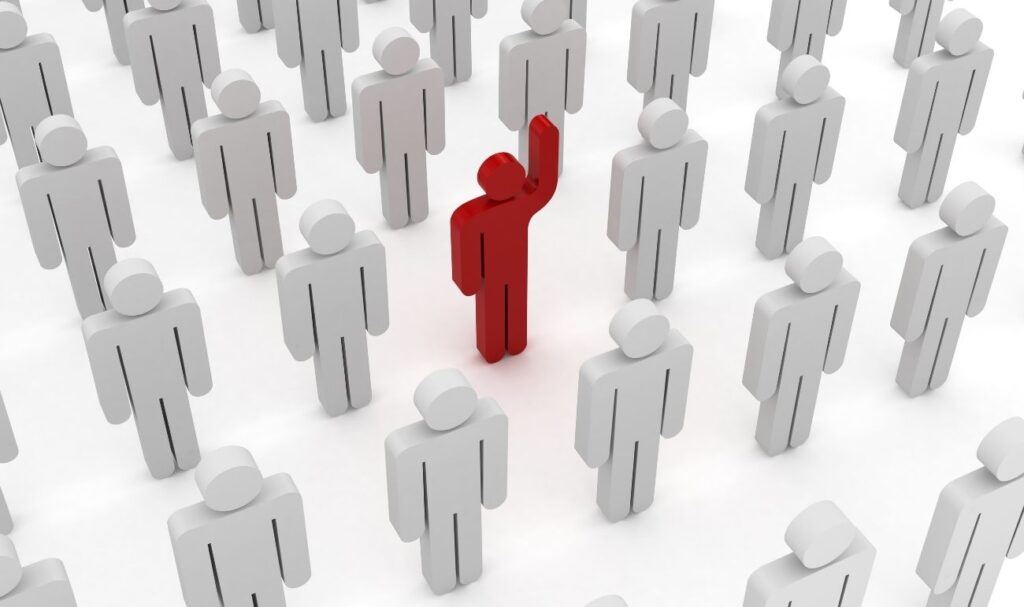
Programmed for Poverty
After hundreds of hours spent listening to audiobooks and watching YouTube videos, I’ve come to the conclusion that the main reason some people succeed while others don’t lies in the way we perceive the world around us. I’ll repeat this endlessly: perspective matters. If your subconscious believes that something is impossible to achieve, then it will remain impossible — even if, in reality, it turns out to be childishly simple. You’ll still be blocked by your own mind.
The human brain still hides countless mysteries. We don’t truly know it, and we don’t use even a fraction of its potential. One could say that there’s still enormous capacity within us — our vessel is almost empty. Yet, by living within limiting beliefs, we turn our greatest asset — the mind — into not a tool of liberation, but a well-guarded prison.
Of course, even the best and most positive beliefs alone won’t make us successful. If you’re tired of hearing internet gurus tell you that you just need to “think positively” and you’ll achieve everything — then congratulations, you’ve reached an important point. You’ve realized that mindset, positivity, and perspective are not everything. So, what’s missing from this puzzle? Dreams, visualizations, and optimism won’t lead us anywhere unless they’re supported by action and knowledge. You can dream and plan all your life, drawing your goals in the air, but unless you learn how to make them real — and actually start doing something — you’ll stay stuck in a “positive planning phase.”
Sooner or later, frustration and bitterness will appear. You’ll wonder: “Why isn’t it working?” After all, you’ve been repeating affirmations, visualizing your desires, believing that success is near — and yet nothing changes. You might even feel deceived — “it was supposed to work!” And it could have worked — but only if you had moved from dreaming to doing. Your mindset isn’t a fairy godmother fulfilling your wishes. It’s a tool — powerful, precise, and neutral — but useless if you don’t learn how to wield it. If you’ve already programmed yourself for success — it’s time to act. And if you’re only beginning to reprogram your thinking, start by understanding how your mind was shaped from the moment you were born. Because to change anything — you must first become aware of it.

The Education System: Slaves Factory
Education in our country, despite the solid theoretical knowledge we leave school with, has never truly been effective. Schools should be places where we gain not only textbook knowledge but also practical understanding — about the world and about ourselves. We choose a specialization as teenagers, after years of general education that, in theory, should help us explore different fields and make conscious decisions about what interests us. Once we choose, we should at least be somewhat prepared — both intellectually and practically — for professional and adult life.
Now, think back to the day you finished school, started your first job, moved out, or paid your first bill. For me, it was a traumatic collision with reality. I didn’t know how to fill out a tax return, but I still remember the structure of a paramecium. I had no clue about economics, credit systems, or taxes, but I could easily recite all the creative phases of Picasso. In short: I had no idea how the world actually worked — the very world I had spent most of my life supposedly “learning about.”
In school, we receive education designed for the middle class. We are taught to collect diplomas, find a “secure” full-time job, start a family, take out a mortgage, work quietly, save a bit for retirement, avoid standing out — and finally, die.
At the same time, we’re told we can do anything — be whoever we want, work wherever we like. We graduate full of optimism, convinced that life will be wonderful and that we can have it all. Yet the system demands we function like programmed drones — the working class, stripped of any real chance to fulfill our dreams or live abundantly. One contradicts the other — but no one tells us that. And when things don’t work out — when we struggle despite doing “everything right” — whom do we blame? Ourselves, of course.

During Europe’s industrialization, it became clear that factories and production processes required workers — not free, independent thinkers living in harmony with nature and their beliefs, but obedient individuals who followed orders without question. They were expected to do as they were told, in exchange for a guaranteed paycheck — a semblance of safety and stability. Before this period, education was reserved for the wealthy. Only after the Industrial Revolution did it become accessible to all — not out of compassion or fairness, but because a trained, compliant workforce was needed to serve the interests of the elite, disguised as being “for the common good.”
So, if you believe you live in a country that truly cares about educating its citizens to help them succeed, manage their lives wisely, and live prosperously — I’m sorry to say, you’ve been misled. Free education exists to program society into behaving as the state expects — maintaining a middle and working class that serves the system, while the privileged few reap the rewards of your labor. And this deception isn’t unique to Poland or Europe — it’s global.
What can you do now that you know this? Start re-educating yourself — in economics, finance, psychology, health, nutrition, and any field that supports your growth and dreams. We have one great advantage today — all this knowledge is at your fingertips, online and accessible. A shift in perspective is essential, but so is taking action. Stop saying, “I’ll learn it someday,” or “it will come to me eventually.” It won’t — unless you start.
If you doubt my theory, ask yourself: when were you ever taught in school to think critically and independently? To challenge outdated systems, to bring value to your surroundings, or to manage your own finances? How many lessons focused instead on obedience — on being “good,” “polite,” and “doing what’s expected”? We were trained to think like robots, to fit into boxes — instead of being encouraged to think creatively, question norms, and form our own opinions.
Children and teenagers are the most impressionable and absorbent learners. Based on their upbringing and environment, they carry those early lessons into adulthood — repeating patterns, fulfilling expectations, and unconsciously following the programs instilled in them. But this doesn’t mean we’re doomed to failure. Every form of programming can be undone through reprogramming.
The first step is awareness — recognizing and locating the error. Once that’s done, we can begin the process of change: learning new behavioral patterns that, over time, become our new subconscious defaults.
Let’s be clear — this isn’t about blaming teachers or inventing conspiracy theories about secret government control. Teachers themselves grew up in the same system. They pass on what they were taught to believe is the best way to live. They don’t mean harm — they simply don’t realize that this “knowledge” is outdated and limiting. They, too, are victims of manipulation and conditioning.
Fortunately, some people — like you and me — have broken free from this cycle. If you’re reading this, it means you’re searching for answers because, consciously or not, you already feel that something is off. Appreciate that awareness — many people will go their entire lives without reaching this point.

Ailing Roots: The Impact of Ill Belief Systems
When mentioning teachers, we must also acknowledge the influence of parents and peers, the people we grow up around. Every group carries its own beliefs and passes them along, often unconsciously. Children watch, listen, and imitate — believing that what they see is “normal” and “right.”
For instance, in my home, wealth was associated with evil and exploitation. My mother used to tell me, “Find yourself an honest but poor man — only such a man will love and respect you.” So, for much of my life, I believed that wealthy people were the enemies of happiness — deceitful, selfish, and incapable of love. Later, I learned that financial status has nothing to do with morality or integrity.
My father, on the other hand, would say, “It’s better to have a stable job without stress or responsibility.” He didn’t seem to notice that for most of my childhood, I watched him work three shifts, come home pale with exhaustion, eat, sleep, and leave again — only to complain with my mother about the constant lack of money. Now, as I write this, I wonder how he didn’t see that financial insecurity brings far greater stress than taking responsibility for one’s own career or business. This is exactly how childhood beliefs shape and limit us. Without critical thinking or self-awareness, we continue living in struggle, blaming ourselves for outcomes we never learned to control.
We also absorb beliefs from friends, neighbors, and communities. The more time we spend in certain environments, the more we internalize their thinking and behaviors. That’s why the saying “Show me your friends, and I’ll tell you who you are” is so accurate.
If you grew up hearing that money is evil — that it corrupts people, causes problems, or can only be earned through deceit — then you were programmed to be poor. Statistically, most people never rise above the financial and social status of their upbringing. It’s not impossible, but reprogramming yourself takes time, effort, and awareness — which few people develop.

Influenced by the Media: How Content Shapes Our Beliefs
Every one of us is influenced by the content we consume — TV, the internet, books, social media. We spend countless hours absorbing it, subconsciously accepting the patterns it presents as truth. Think about it — how often do you see a story where the villain is rich, corrupted by power and greed, while the hero is poor, humble, and pure-hearted? The message is clear: money equals evil.
Take Aladdin, for example — the character I adored as a child. A poor boy with a pure heart defeats the powerful, wealthy villain Jafar and wins the heart of the princess. But viewed through adult eyes, it’s absurd: a homeless thief magically wins a princess’s love, while all the rich suitors are portrayed as cruel or stupid. The subconscious takeaway? The poor are good, the rich are corrupt.
Another childhood favorite of mine was Robin Hood. I played Lady Marian, while my friend played the hero who “stole from the rich to give to the poor.” Now imagine that in real life — a gang of thieves raiding your wealthy neighborhood because they believe you “have too much,” claiming moral superiority while redistributing your hard-earned possessions. It sounds ridiculous — yet this is the kind of moral programming we pass down to children.
This doesn’t mean we should stop watching fairy tales, throw out the TV, or delete social media. It simply means we must be aware of the patterns and messages we’re absorbing — and refuse to take them at face value. I still love Aladdin and even went to see Disney’s live-action remake in theaters — but that doesn’t mean I accept or internalize all the values it promotes.
Capitalism: The Perils of Consumerism
Once we’ve been programmed — at home, in school, at work, and in society — we often end up feeling unhappy and overwhelmed by our repetitive, colorless lives. Instead of searching for the true cause of our dissatisfaction, we try to fill the void with possessions.
In the early 2000s, the popular saying was: “When you’re down, go shopping.” We live in a time where companies compete to sell us products that promise to fix our problems. These marketing campaigns are masterfully crafted, using psychological manipulation and subliminal persuasion. Experts know exactly which buttons to press in our minds to silence rational thought and trigger emotional impulses — urging us to buy: diet pills to “feel loved,” trendy clothes to “boost status,” or cosmetics to “increase confidence.”
One of the most brilliant manipulations in the beauty industry was convincing women that they’re doing it “for themselves.” After decades of slogans like “Do it for him,” came a new level of deceit — “Do it for you.” But the truth is, no cream, outfit, or supplement can build genuine self-confidence or self-worth. At best, they might enhance your exterior — but inside, you’ll remain unfulfilled.
And honestly, I doubt they even help much with appearance. Because if you lack inner strength, charisma, and genuine energy, even the finest clothes will look out of place. People will sense something is off — that your outer perfection is just a mask. That’s why people say, “Confidence makes anything look good.” Someone who loves and accepts themselves will look like a million dollars in jeans and a white T-shirt — while someone filled with self-hate will look awkward, even in royal attire.
Meanwhile, the media keeps preaching that “money isn’t everything,” that we should “live in the moment” and “enjoy the present.” It sounds inspiring — until you realize how easily it becomes a trap. The average twenty-something takes this literally, living paycheck to paycheck, sometimes even in debt, all in the name of “enjoying life.” They’re caught in a spiral of consumption, unknowingly locking themselves in a prison — a job they despise but can’t leave, because now they must pay for their “freedom.”
Then, when a crisis hits — illness, job loss, or an unexpected expense — they have no savings left, because they’ve been “living for the moment.” But living in the moment doesn’t mean reckless spending or disrespecting your hard-earned money. That’s not mindfulness — that’s ignorance, disguised as philosophy.

So, what can you do when you realize you’ve been programmed to accept poverty? It’s time to reprogram yourself.
- Read and listen: Knowledge is power. Fill your mind with valuable content. Much of it is freely available on the internet, and you can also share books and audiobooks with friends or explore free content on platforms like YouTube or Spotify.
- Change your environment: Surround yourself with people who align with your goals. Engage in conversations, seek opportunities to work with them, and build meaningful connections. Choose individuals within your reach who can provide valuable insights and support your journey.
- Learn, plan, and take action: Acquire knowledge systematically, develop plans, and take consistent action. Remember that success is not an overnight phenomenon; it requires patience and perseverance.
If you’re interested in exploring the topic of limiting beliefs and wealth accumulation, I recommend watching an episode on the Emocjonalne youtube channel that discusses finance from a therapeutic perspective.

Organize your life.
The first publication in the Untold product series, created to share methodology for organizing everyday life, cultivating systematic discipline, and developing proper habits. Drawing from the author's experience, knowledge, beliefs, and commonly available coaching tools, she aims to inspire you to take action and present you with a straightforward approach to achieving fulfillment and building self-esteem. Written in a simple way, it contains examples from everyday life, practical tips, exercises, and beautiful graphics. Available in e-book and audiobook.




Leave a Reply